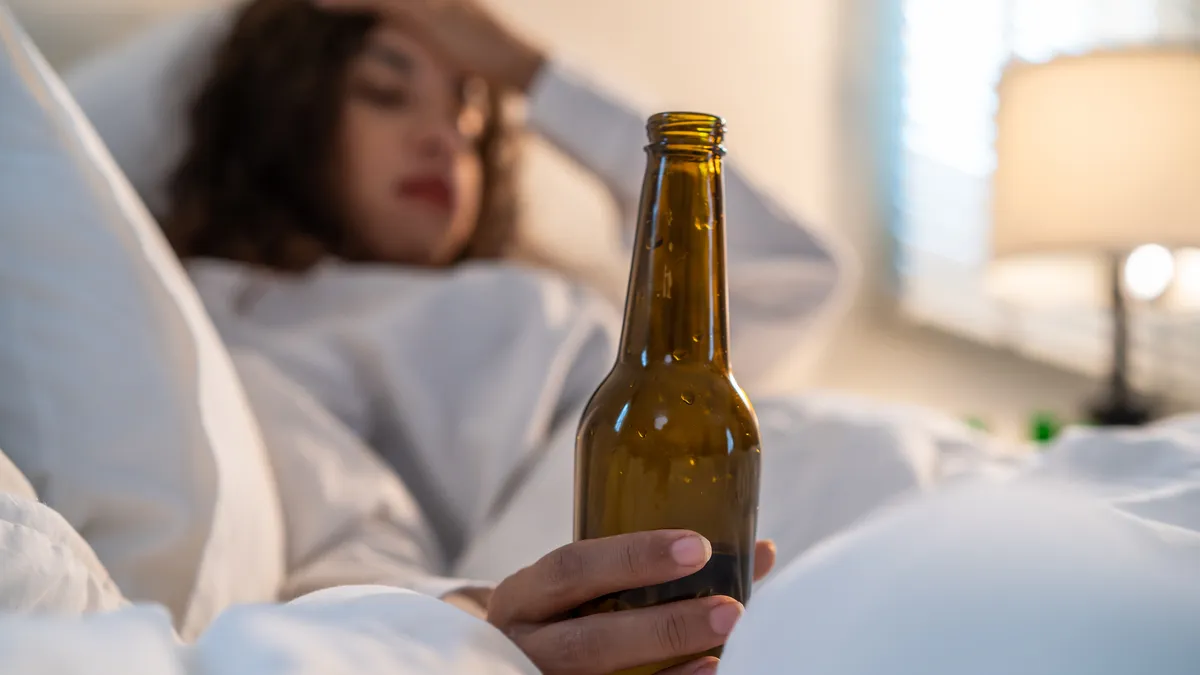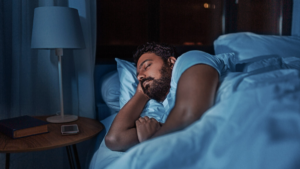A nightcap may seem like the perfect way to unwind and fall asleep faster, but the truth is that alcohol can have a major impact on the quality of your sleep. From interfering with your REM cycle to causing restless nights, alcohol is not your sleep’s best friend.
In this blog post, we’ll delve into the ways in which alcohol affects your sleep and why you should think twice before reaching for a drink before bed.
Disrupting REM Sleep:
REM sleep, also known as rapid eye movement sleep, is a critical phase of the sleep cycle where your brain and body engage in essential activities. During this stage, vivid dreaming occurs, and crucial cognitive processes take place, including memory consolidation and emotional regulation. Unfortunately, consuming alcohol before bed can disrupt this important REM sleep phase. Alcohol’s sedative effects may make you fall asleep faster, but it also reduces the amount of time spent in REM sleep. As a result, you may experience fragmented or shallow REM sleep, which can leave you feeling groggy, unfocused, and mentally drained in the morning. Adequate REM sleep is vital for optimal cognitive function, mood regulation, and overall well-being.
Restless Nights:
While alcohol may initially make you feel drowsy and facilitate the onset of sleep, its effects on sleep architecture can lead to a night of restlessness and frequent awakenings. Alcohol disrupts the normal progression through sleep stages, causing a rebound effect as the body metabolises the alcohol. As blood alcohol levels decline, sleep becomes lighter and more fragmented, often resulting in multiple wake-ups throughout the night. These interruptions can disrupt the natural sleep cycle, impede deep and restorative sleep stages, and prevent you from experiencing the full benefits of a good night’s rest. As a result, you may wake up feeling fatigued, groggy, and lacking the energy needed to perform at your best during the day.
Dehydrating Your Body:
Alcohol’s diuretic properties can have a dehydrating effect on the body. When you consume alcohol, your kidneys produce more urine, leading to increased fluid loss. This diuretic effect can disrupt the body’s fluid balance and contribute to dehydration, which negatively impacts sleep quality. To promote optimal sleep, it’s important to ensure proper hydration throughout the day and especially before bedtime.
Interfering with the Sleep Hormone:
Melatonin, often referred to as the “sleep hormone,” plays a crucial role in regulating the sleep-wake cycle. It is naturally produced by the brain’s pineal gland in response to darkness, signalling the body that it’s time to sleep. Unfortunately, alcohol consumption can interfere with the production and release of melatonin, making it more challenging to fall asleep and maintain a consistent sleep pattern. Disruptions in melatonin levels can lead to delayed sleep onset, fragmented sleep, and difficulties in achieving deep, restorative sleep. By disrupting this important hormonal balance, alcohol impairs the body’s natural sleep regulation mechanisms, hindering the ability to achieve optimal sleep quality.
While a drink or two may seem like a good way to unwind after a long day, the truth is that alcohol can have a significant impact on your sleep. So, the next time you’re reaching for a drink before bed, consider the negative effects it may have on your sleep. Instead, reach for a quality sleep tea and your body will thank you for it!









